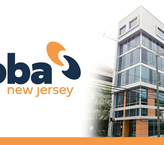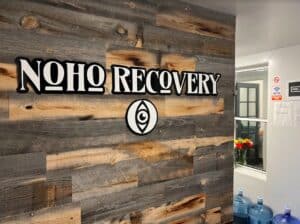LGBTQ And Addiction
The LGBTQ Community And Addiction
Members of the LGBTQ (Lesbian, Gay, Bisexual, Transgender, and Queer) community face a number of challenges that have contributed to a high rate of addiction within the community.
An estimated 20 to 30% of the LGBTQ community abuses substances, compared to about 9% the population as a whole.
LGBTQ-specific treatment centers are sensitive to the needs of the LGBTQ community and address any underlying elements that may have caused an addiction. This is instrumental to the recovery process. According to the National Institute on Drug Abuse (NIDA), addiction treatment programs that offer specialized groups for the LGBTQ community show better outcomes for those clients compared to non-specialized programs. Current research suggests that treatment should address unique factors in these patients’ lives, such as homophobia/transphobia, family problems, violence, and social isolation.
Online Addiction Counseling
Get professional help from an online addiction and mental health counselor from BetterHelp.
- Access to Therapy 24/7
- Easy Online Scheduling
- 20,000+ Licensed Therapists
Paid Advertising. We may receive advertising fees if you follow links to the BetterHelp site.
Challenges The LGBTQ Community Faces
The LGBTQ community suffers from higher rates of substance abuse than the population as a whole. This is due in part to a number of societally imposed obstacles that they face, often on a daily basis, that those who identify as heterosexual typically don’t.
A few of these challenges include:
- Discrimination or stigmatization based on sexual orientation
- Hate crimes, emotional abuse, threats, public humiliation, or ridicule
- Rejection or shame from family or friends after coming out
- Loss of employment or not receiving promotions
Oftentimes, LGBTQ individuals will turn to drugs or alcohol as a way to self-medicate. Substances can help temporarily numb uncomfortable feelings such as depression, anxiety, anger, or fear. Although substance abuse may appear to be beneficial initially, there are many long-term and negative consequences from hiding one’s feelings.
Transgender individuals are especially vulnerable to turning to addictive substances to deal with feelings of anxiety or loneliness due to negative stigma and discrimination. In fact, one study found that transgender students are 2.5 times more likely to use Cocaine or Meth; they are also twice as likely to abuse prescription medications (such as prescription Opioids or Benzodiazepines).
Common Questions About Rehab
Common Co-Occurring Disorders In The LGBTQ Community
One thing that may provide internal conflict for members of the LGBTQ community is that, oftentimes, they are forced to live a “closeted” life. This is where they hide their sexuality from others in fear of rejection and lead a double life in regards to acting on their sexual orientation. Keeping one’s sexuality a secret is a big psychological toll that may lead to the development of mental health disorders and significant emotional distress.
Common psychological or emotional disorders present in the LGBTQ community include:
- Major depression
- Generalized anxiety disorder
- High levels of stress
- Suicide attempts or self-harming tendencies

Break free from addiction.
You have options. Talk about them with a treatment provider today.
In addition to the societal challenges that they face, an LGBTQ individual may also be experiencing physical or health issues related to their sexuality. These can also contribute to an addiction and may include:
- Compulsive sexual behavior
- Sexual dysfunction
- Sex or HIV-related anxiety
- Sexual abuse or assault
Many individuals who identify as LGBTQ have a co-occurring mental or sexual disorder that either led to a substance abuse problem or is perpetuating this abuse. When considering which treatment option is best for an LGBTQ individual, there should be a focus on addressing any co-occurring disorders to allow for the highest chance of sustained sobriety while in recovery.
Looking for a place to start?
Join the thousands of people that have called a treatment provider for rehab information.
Free and confidential
Available 24/7
Access to professional treatment
Drugs Of Choice Within The LGBTQ Community
While many substances can be addictive, there are five that are abused most frequently within the LGBTQ community.
-
Tobacco
Gay and transgender individuals use tobacco up to 200% more than those who identify as heterosexual.
-
Alcohol
Between 20 and 25% of the LGBTQ community have moderate to severe alcohol dependency.
-
Marijuana
Gay men are 3.5 times more likely to use Marijuana than straight males.
-
Amphetamines
Members of the LGBTQ community are 12.2 times more likely to use Amphetamines.
-
Heroin
LGBTQ individuals are 9.5 times more likely to use Heroin than heterosexual individuals.
Treatment Centers For The LGBTQ Community
One of the reasons that LGBTQ individuals may be hesitant to get help is the lack of resources available to them that address their individual needs, especially in certain areas of the US.
There are various treatment programs, however, that focus on the isolation that members of the LGBTQ community often experience, as well as the lasting effects of conducting a “closeted” life or being the victim of discrimination.
LGBTQ-specific rehab centers help pinpoint any co-occurring mental health disorders, which helps with lasting healing and recovery. Without addressing the underlying reason to use or any conditions that may be contributing to an addiction, there is a far greater chance for relapse.
Explore These Featured Treatment Centers


Get The Help You Need
The LGBTQ community’s rate of addiction is concerning, as are the various challenges and obstacles these individuals face on a daily basis that can contribute to a substance abuse problem.
By entering a rehab center that specializes in LGBTQ addiction and care, you will feel like part of the majority rather than the minority and be surrounded by individuals that can provide support and encouragement.
If you or someone you love is struggling with an addiction and want to explore treatment options, contact a treatment provider for help.
Published:
Author
Jeffrey Juergens

-
Jeffrey Juergens earned his Bachelor’s and Juris Doctor from the University of Florida. Jeffrey’s desire to help others led him to focus on economic and social development and policy making. After graduation, he decided to pursue his passion of writing and editing. Jeffrey’s mission is to educate and inform the public on addiction issues and help those in need of treatment find the best option for them.
- More from Jeffrey Juergens
Reviewed by Certified Addiction Professional:
Theresa Parisi

Theresa Parisi is a Certified Addiction Professional (CAP), Certified Behavioral Health Case Manager (CBHCM), and International Certified Alcohol and Drug Counselor (ICADC) with over 12 years of experience in the addiction treatment field.
- More from Theresa Parisi
Sources


Recovery Starts Today
Call Now For Addiction Support



Newport Academy – Teen Rehab Center
Port Townsend , WA



Moonlight Mountain Recovery – Nampa
Nampa , ID

Bayside Marin Treatment Center
San Rafael , CA

Newport Institute for Young Adults
Sunol , CA

Moonlight Mountain Recovery
Pocatello , ID



Tarzana Recovery Center – TRC
Tarzana , CA



Hollywood Hills Recovery
Los Angelos , CA

Gratitude Lodge Drug & Alcohol Rehab
Long Beach , CA